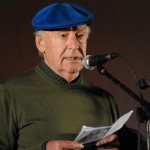In a frankly celebratory column at The Nation, its resident sports-and-social-justice scribe Dave Zirin wrote, in his usual blunt and acerbic style, of the arrests of the FIFA 14. The Federation Internationale de Football Association has long been accused of the most egregious forms of authoritarianism and corruption, and its slogan, “For the Good of the Game”, feels like satire in the wake of this sudden yet seemingly inevitable clampdown. (Having described FIFA’s leadership as “cartoonishly evil”, the satirist John Oliver nods his head vigourously.) Zirin is not waving pom-poms for the United States Justice Department — he’d be among those who also see a satiric tint in the name of that organization — but he has been calling for action on sporting corruption of many kinds for years. He wrote the book on Brazilian activism against global giga-events that you may have heard of.

Another writer to know better, who knew better than you and me about many things. Including the wearing of blue berets. (Photograph: Pablo Porciuncula/AFP/Getty Images)
Fittingly, Zirin invokes the late great Uruguayan journalist and histori-contrarian Eduardo Galeano. His Memory of Fire series of books on the colonization of South and Central America is a landmark of “people’s history”, and before that came the monumental Open Veins of Latin America: Five Centuries of the Pillage of a Continent. For many, though, his football opus Soccer in Sun and Shadow was his greatest literary gift. It’s among the most important and eloquent books on any sport, ever. Early in Zirin’s column, he quotes Galeano,
